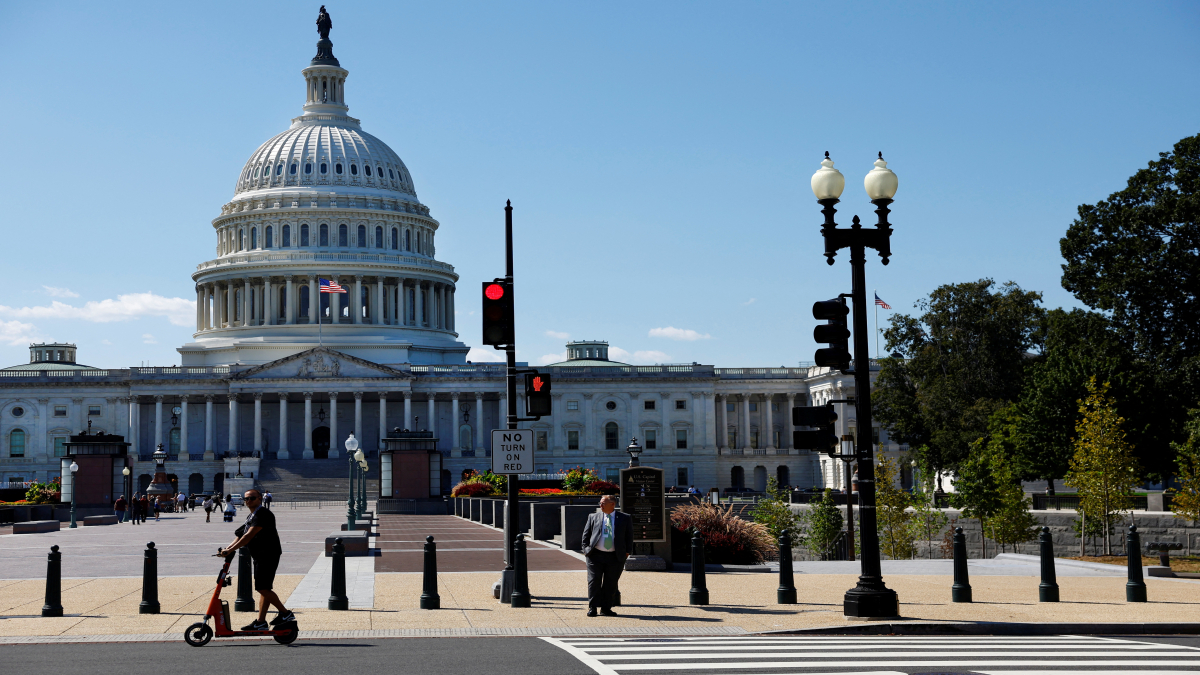The US House of Representatives’ select committee on the Chinese Communist Party (CCP) released a statement on Tuesday, detailing how the Congress, the American parliament, plans to take on the ruling dispensation of China this week — the release described as “China Week”. Basically, China Week refers to a bunch of 28 bills that are coming up in the Congress to target China on a variety of issues, ranging from trade, electric vehicles to farm ownership.
The ultimate aim of this legislation spree appears to be arming the winner of the November 5 presidential election to put the US in advantageous position over China as the two global powers rival for strategic superiority.
China is not happy with the China Week in the US Congress. Chinese embassy’s spokesperson Liu Pengyu has been quoted as saying in the US media that the bills, if passed, would cause “serious interference to China-US relations” and “inevitably damage” America’s own interests.
The story began in July
House Speaker Mike Johnson, a Republican member from Louisiana, told a Hudson Institute event in Washington in July that he was working on “a significant package of China-related legislation signed into law by the end of this year”.
Johnson said, “We’ll build our sanctions package, punish the Chinese military firms that provide material support to Russia and Iran and we’ll consider options to restrict outbound investments.”
Impact Shorts
More ShortsThis China Week in the Congress is not the end of the story. It is also not yet clear how many bills will actually be brought to the floor of the House for debate, and how many of them the Senate will examine.
What these bills aim for
The select committee release said Chairman John Moolenaar (R-MI) helped usher in China Week with the BIOSECURE bill, aimed at protecting Americans’ genetic data and US firms from “predatory CCP-backed biotechnology companies”.
The bill, in particular, targets Chinese military company BGI Genomics and CCP-aligned biotechnology firms Wuxi AppTec and Wuxi Biologics, the release said, and codifies the companies as foreign adversary biotechnology companies, deeming them ineligible for certain federal contracts. The bill was sponsored by Chairman Moolenaar, Ranking Member Raja Krishnamoorthi (D-IL), and Brad Wenstrup (R-OH).
Following the BIOSECURE bill’s passage, Chairman Moolenaar said, “The House just sent a powerful, bipartisan message to the Chinese Communist Party: the United States will not sit idly by while the CCP steals our genetic data and seeks to control our biotech supply chains. I encourage my colleagues in the Senate to expeditiously pass the BIOSECURE Act and protect Americans from this growing threat.”
Among other bills are:
The Hong Kong Economic and Trade Office (HKETO) Certification Act that will empower the US president to close Hong Kong’s de facto consulates in the United States if the administration finds that the former British colony doesn’t have autonomy in decision-making and is doing China’s bidding.
The Protect America’s Innovation and Economic Security from CCP Act will create a new unit in the Department of Justice’s national security division focusing on China.
The End Chinese Dominance of Electric Vehicles in America Act looks to debar electric cars that have China-made components, especially batteries from claiming tax credits the Biden administration announced earlier this year.
Besides, there are also the Taiwan Conflict Deterrence Act, the DHS Restrictions on Confucius Institutes and Chinese Entities of Concern Act, the Countering CCP Drones Act, the Chinese Currency Accountability Act, the No WHO Pandemic Preparedness Treaty Without Senate Approval Act, the Maintaining American Superiority by Improving Export Control Transparency Act, the Economic Espionage Prevention Act, and the No Foreign Election Interference Act up for consideration during the week in the House of Representatives.
The Congress is concerned over “the military, economic, ideological, and technological threats” posed by the Chinese Communist Party to America. There is a growing sense among American politicians that Chinese firms — such as fashion retail chains like Shein and Temu — use the loopholes in the US laws to ship clothing made in ‘forced-labour factories’ employing vulnerable groups including Uyghur Muslims.
Why have a dedicated China Week
The context is set by the growing geostrategic hostilities between the US and China, with both testing each other in the Ukraine war, the West Asia crisis, the South China Sea disputes and a host of trade and tariff wars. Despite their military leaders warming up and high-profile delegations working for a possible Biden-Xi Jinping meeting later this year, there seems to be a unanimity among legislators on both sides of the divide.
Republican leader Steve Scalise told a US news channel, “They’re all bills that should be very bipartisan, because there are things that China is doing right now that are direct threats to our country’s national security and if we get strong bipartisan votes, you have a higher chance of getting through the Senate.”
“We wanted to combine them all into one week so that you had a real sharp focus on the fact that we need to be aggressive in confronting the threat that China poses,” Scalise said.
But challenges remain, in Senate
With Republicans pushing these bills, there is a strong likelihood that they would get the nod of the lower house of the Congress this week. But then the Senate will have only two more weeks to consider and approve them. The Congress will go into a recess on September 30 and won’t sit before the November 5 polls. Traditionally, the Senate is viewed as a slow-moving house.
Once the bills are approved by both the House of Representatives and the Senate, President Joe Biden will have to sign them or veto them. In the latter case, both houses will need a separate two-thirds majority each to override the decision.


)

)
)
)
)
)
)
)
)



